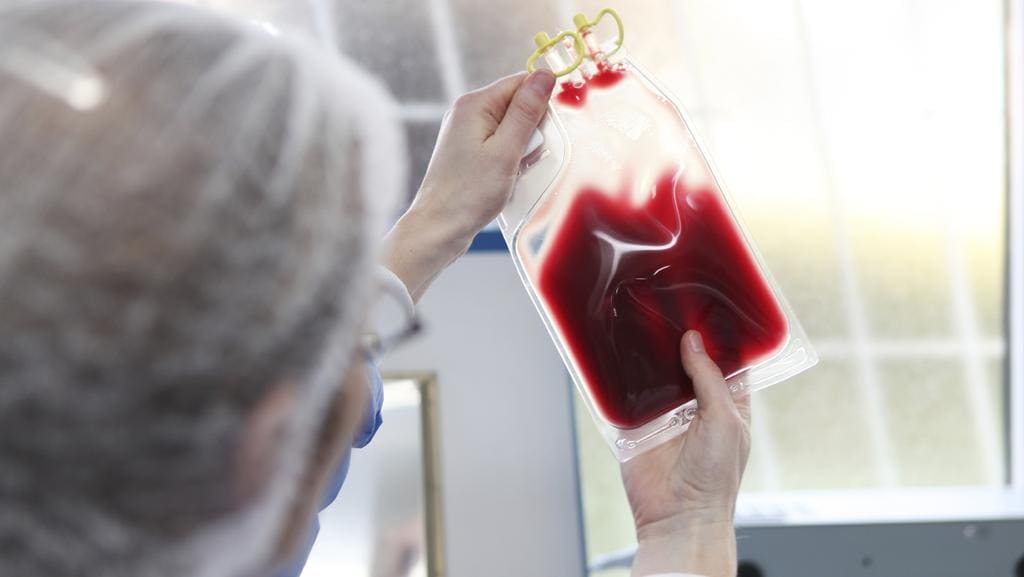It’s happened again: Still another study, this time out of
Canada, proving beyond all doubt that blood transfusion is bad medicine.
The
February, 2017, World Journal of Urology
contains the results of a nine-year study of bladder cancer patients who
underwent a surgical procedure called radical cystectomy.
Of the 2,593 patients, 62% overall received blood
transfusions. (In 2000, at the beginning of the study, it was 68%. By 2008 the
number had dropped to 54%. So surgeons are slowly getting the message, but not
fast enough.)
Transfused: Not transfused:
Average hospital stay: 11
days 9 days
Readmitted within 90 days: 38% 29%
Mortality: 11% 4%
And here’s the big one: Overall 5-year survival rate was 33%
higher among those patients not transfused. And the cancer-specific survival rate
was a whopping 39% higher among those who had bloodless surgery!
This is like the umpteenth study proving that blood
transfusion is a terrible idea. Here are just a few recent examples:
- Blood Transfusions in Patients Undergoing PCI Linked With Adverse CVD Outcomes
- “Observational studies examining patient adverse outcomes associated with blood transfusion.”
- Blood transfusions still overused and may do more harm than good in some patients
- Fewer transfusions means better patient outcomes, lower mortality
- Minimizing Transfusions to Reduce Cost, Improve Outcomes
- What’s behind the decline in blood transfusions?
- Critical Care Patients Benefit From Restrictive Transfusion Strategy
“Jehovah’s Witnesses who refused blood transfusions while undergoing cardiac surgery were significantly less likely to need another operation for bleeding compared with non-Witnesses who were transfused. They were also less likely to suffer a post-op heart attack or kidney failure.”
Can’t we, by now, safely assume that, what has been found to
be true in studies of these fields of surgery, is true in every branch of medicine?
Yet the same day this bladder cancer study came out, another story was published about the new guidelines for surgeons when a patient refuses a
transfusion. It was introduced with the line,
“Blood transfusions are a common and often lifesaving procedure.”
Because of the intimidation factor, and considering the
years they spent in medical school, plus what we assume must be hours of
ongoing study, you may feel the doctor surely already knows anything you might
be inclined to tell him. Not so.
Surgeons spend on average 4.4 hours a week reading medical
journals. I spend more time than that on Facebook. Also, if you are a heart surgeon, how likely is it that you’re
going to spend part of your precious 4.4 hours perusing the “World Journal of Urology”?
Of course, as the list above shows, there have been articles
in heart surgery journals, too, about the advantages of bloodless surgery, just
as there have been in nearly every other field, from journals about joint
replacement to journals about emergency medicine.
But changing the thinking of doctors is a slow process. As cardiothoracic specialist Bruce Spiess even went so far as to say:
"Blood transfusions are a religion. They have never been safety- or efficacy-tested," he said. "Drug options are carefully tested and regulated through prospective, randomised double-blind testing, but blood transfusion stands apart in that it has predominantly been believed to be helpful and evolved as a pillar of modern medicine."
Blood transfusions are not life-saving. They are simply bad medicine. Click on the links, do your research. Share this column with everyone you know, particularly if they are in the medical field, or the media.
Unlike those drug commercials, I'm not suggesting you "ask your doctor." I'm suggesting you "TELL your doctor." If he disagrees, find a doctor who has read something other than Facebook this week.
To read another of my columns about blood medicine, click here.
Bill K. Underwood is a freelance columnist and author of several books, all available in ebook or paperback at Amazon.com. You can help support this site by purchasing one of his books.

